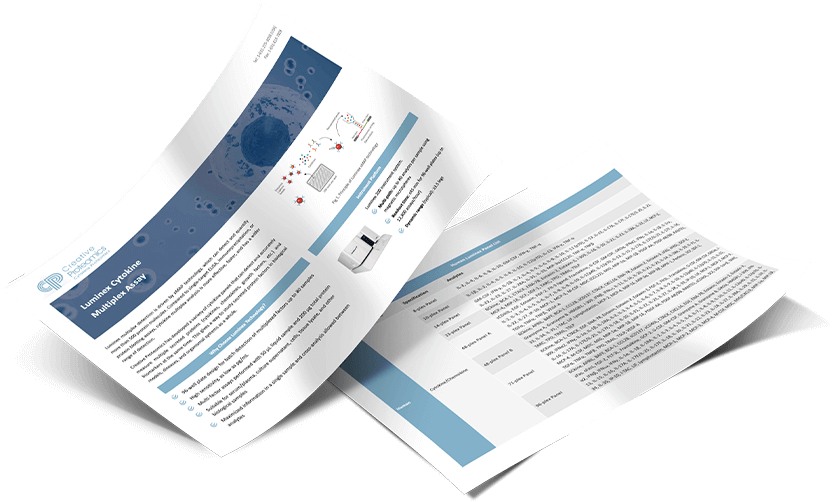Introduction
Rheumatoid arthritis (RA) is an autoimmune disease that manifests itself as symmetrical, multi-joint swelling and pain. The pathology is characterized by synovitis, destruction of articular cartilage and bone, and immune dysfunction. Cytokines are small molecules produced by immune cells and certain non-immune cells, which bind to target cell-specific receptors to further activate second signal bypass and other intracellular mechanisms. Among them cytokines closely related to rheumatoid arthritis include IL-1, TNF-α, IL-6, IL-10, etc. A number of cytokines promote RA. One part of the cytokines has a promotive effect on RA, another part has an inhibitory effect on RA. There is still another part having a bidirectional effect on RA, and they are present throughout the development of RA together.
Mechanism and Function
IL-1, TNF-α, IL-6 and other cytokines produced by monocytes/macrophages are thought to play a dominant role in chronic inflammation and joint degeneration in the later stages of the disease.IL-1 has many complex biological effects and it is one of the major mediators of inflammation, tissue damage as well as immune responses, which is predominant in RA. IL-1 stimulates the expression and protein synthesis of cytoplasmic PLA2 and cyclooxygenase-2 genes in human synoviocytes. It enhances their activity, which in turn breaks down phospholipid membranes to produce arachidonic acid, leading to the production and release of PGE2. In addition, IL-1 promotes human chondrocyte secretion of fibrinolytic activator to convert fibrinolysin into fibrinolytic enzyme and degrade fibrin, which accelerates collagen catabolism and causes cartilage damage in RA.
TNF-α and IL-1 are usually synthesized and secreted simultaneously and share many common biological effects. Both stimulate macrophages to increase their own production in an autocrine manner and also promote each other's production. They are both pro-inflammatory cytokines central to the pathogenesis of rheumatoid arthritis and are involved in the development of RA. They can activate the expression of endothelial cell adhesion molecules in active RA. In arthritis, leukocytes from the blood are pooled into the joint cavity by interacting with adhesion molecules.
Both IL-1 and TNF-α induce the synthesis and secretion of IL-6, but the pathogenic role of IL-6 in RA is not the same as that of IL-1 and TNF-α. It enhances the effects of IL-1 and TNF-α, and induces the production of other cytokines to exert pathogenic effects such as IL-1, IL-2 and TNF. In addition, it promotes the production of immunoglobulins IgG and IgM and the synthesis of rheumatoid factor by B cells.
Creative Proteomics can provide cytokine detection platform for scientific research. According to different purposes, our dedicated analysts will customize exclusive solutions for you. We aim to provide customers with high-quality and convenient services to help you accelerate the progress of your project.
Our cytokine detection service includes but is not limited to:
- Quantitative and qualitative detection of cytokines in different species
- Quantitative and qualitative detection of cytokine antibodies
- Quantitative and qualitative detection of single/multiple cytokines
Sample requirements
- Sample Types-Blood, serum, plasma, cerebrospinal fluid, cell culture supernatant, tissue homogenate, cell culture medium, urine, tumor, etc.
- Sample Volume-It is optimal for at least 200µl of each sample. This volume allows for triplicate testing of each sample.
Our advantages:
- Efficient design: Multiplex reaction detecting in various methods are available, which can be selected according to different samples and requirements.
- Sensitive Detection: High-quality antibodies are used in the detection process to improve detection specificity and accuracy.
- Reliable results: The feedback results are professional and efficient
Technology platform:
We mainly provide the Luminex cytokine detection platform. Luminex uses fluorescently encoded microspheres with specific antibodies to different target molecules. The different microspheres can be combined freely to a certain extent so that up to 100 analytes can be tested multiple times simultaneously in a single experiment.
The Luminex cytokine assay platform has the following advantages:
- Multiple detection: simultaneous detection of 100 biological targets
- Short experiment time: 1-3 weeks
- High sensitivity: the lower limit of accurate quantification is as low as 0.1 pg/mL
- Save samples: only need a sample volume as low as 25 μL
- Time saving: the experiment process only takes 4 hours
For your different needs, we can also provide the following detection methods:
- Enzyme-linked immunosorbent assay (ELISA)
- Flow cytometry
For more information about cytokines in rheumatoid arthritis detection service or need other detection requirements, please contact us.
References:
- Cho, Mi-La, Kim, et al. Th17 Cytokines Regulate Osteoclastogenesis in Rheumatoid Arthritis. American Journal of Pathology: Official Publication of the American Association of Pathologists, 2015.
- Jun G, Zhen-Qi D. The Progress of the Study About the Roles of Cytokines in the Rheumatoid Arthritis. Medical Recapitulate, 2006.

